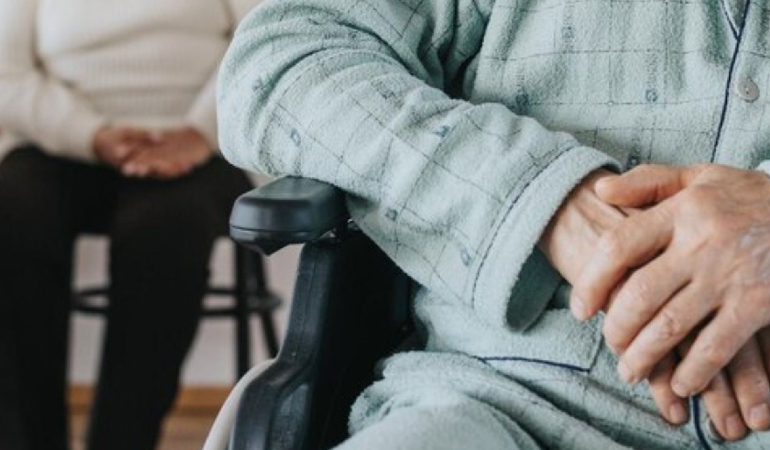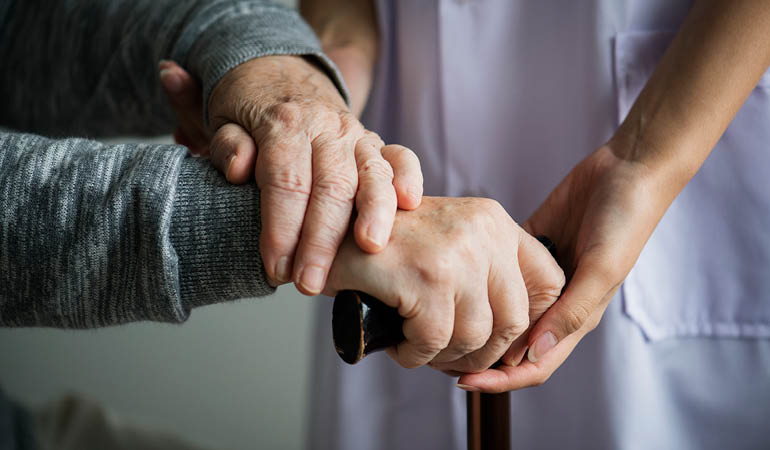Palliative care in luxury elderly home with experienced caregivers and medical supervision
Palliative care in Artha, a senior care home in Gurgaon, is an essential aspect of the care that is provided to its residents. Palliative care is an approach to healthcare that aims to improve the quality of life of patients with severe illnesses by relieving their pain and other symptoms and addressing their emotional, spiritual, and social needs. In India, where the population is ageing rapidly, palliative care has become increasingly important. Artha understands the importance of palliative care for the elderly and is committed to providing its residents with the highest standard of care.
The approach to palliative care in Artha is based on empathy, respect, and dignity. The care is person-centred and individualized, taking into account each resident's unique needs and preferences. The team of healthcare professionals in Artha, which includes doctors, nurses, and counsellors, are highly trained and experienced in palliative care. They work closely with the residents and their families to provide holistic care that addresses physical symptoms and emotional, social, and spiritual needs. In addition to medication and pain management, Artha also offers a range of complementary therapies, such as music therapy, art therapy, and meditation, which can help improve residents' quality of life. Palliative care is essential for the elderly in Artha, and the home is committed to providing the best possible care to its residents.



Holistic Approach to Palliative care
Here is how we manage palliative care at Artha, a luxury senior care home in Gurgaon, India.
- Understand the needs of the residents: Each resident is unique, and their needs should be understood to provide individualized care. Identify their preferences, culture, and beliefs to provide care that aligns with their values.
- Provide holistic care: Palliative care is not just about managing the pain but also addressing other needs, such as emotional, social, and spiritual needs. Care should be tailored to the resident's physical, emotional, and spiritual needs.
- Manage symptoms effectively: Pain, fatigue, and other symptoms can significantly impact a resident's quality of life. The use of medication and non-pharmacological interventions can help to manage these symptoms.
- Communicate effectively: Clear communication is essential to ensure that residents, family members, and caregivers understand the care plan, treatment options, and expected outcomes. Encourage open communication and provide support to the resident and their family.
- Provide support for families: Palliative care is for residents and their families. Offer emotional support and counselling to family members to help them cope with the challenges of caregiving.
- Foster a team approach: Palliative care requires a multidisciplinary team approach, including physicians, nurses, social workers, and spiritual care providers. Encourage collaboration, open communication, and shared decision-making to provide the best care possible.
- Focus on quality of life: Palliative care is about improving the quality of life for residents, not just prolonging life. Encourage residents to participate in activities they enjoy and provide opportunities for social interaction.
- Ensure continuity of care: Continuity of care is essential to ensure that residents receive consistent care. Develop a care plan that outlines the resident's needs and preferences and ensure that all caregivers know the program.
- Provide education and training: Provide ongoing education and training to caregivers to ensure they have the knowledge and skills to provide quality palliative care.
- Emphasize the importance of self-care: Caregivers can experience emotional and physical stress, leading to burnout. Encourage self-care practices such as exercise, meditation, and respite time to prevent burnout and maintain well-being.
FAQs
Palliative care services focus on relieving the symptoms and stress of serious illnesses. They are designed to improve the quality of life for patients facing life-threatening conditions and can be offered alongside curative treatments. Palliative care addresses not only physical pain but also emotional, social, and spiritual needs, making it a holistic approach to care. Individuals with chronic illnesses such as cancer, heart disease, or neurological conditions can benefit from palliative care. The goal is to enhance comfort and provide support for patients and their families during difficult times.
While both palliative and hospice care focus on comfort and quality of life, there is a key difference. Palliative care can be provided at any stage of a serious illness and can be combined with curative treatments. Hospice care, on the other hand, is specifically for patients nearing the end of life, typically when curative treatments are no longer being pursued. Palliative care services can be offered in various settings, such as hospitals, homes, or palliative care centres. They are designed to relieve symptoms, manage pain, and support the emotional needs of patients and their families.
A palliative care centre offers a wide range of services to improve the comfort and well-being of patients with serious illnesses. These services include pain and symptom management, emotional and psychological support, spiritual care, and assistance with decision-making about treatment options. Palliative care providers work as part of a multidisciplinary team, which may include doctors, nurses, social workers, and chaplains. The team collaborates with the patient and family to create a comprehensive care plan tailored to the patient’s needs. These centres provide a supportive environment that addresses the physical, emotional, and spiritual aspects of care.
Choosing the best palliative care home involves considering several factors, including the level of medical care, the qualifications of the palliative care team, and the services offered. Look for facilities that provide a holistic approach, addressing not only the physical symptoms but also the emotional and spiritual needs of the patient. Ensuring that the home offers 24/7 care, pain management services, and specialist access is important. Additionally, visiting the facility and speaking with the staff can give you a sense of how compassionate and attentive the care will be. Choosing a reputable palliative care home ensures that your loved one receives the best possible care during their illness.
Home-based palliative care services allow patients to receive compassionate care in the comfort of their own homes. This approach provides patients with a more personal and familiar setting, which can significantly enhance their emotional well-being. In-home palliative care includes pain and symptom management, emotional and spiritual support, and assistance with medical decision-making. Palliative care providers work closely with families and caregivers to meet the patient’s needs. By receiving care at home, patients can maintain a sense of independence while benefiting from the comprehensive care that palliative care offers.
During a palliative care consultation, the team will assess the patient’s medical condition, symptoms, and emotional and spiritual needs. The consultation aims to create a personalised care plan that addresses the patient’s concerns, such as pain management, emotional support, and treatment preferences. The palliative care team will work closely with the patient and family to explain the available care options and guide decision-making. Additionally, the team may include specialists who can offer further expertise in nutrition, psychological care, and spiritual support. The consultation ensures that the patient’s comfort and quality of life are the top priorities.
Comprehensive palliative care involves addressing the physical, emotional, social, and spiritual needs of patients with serious illnesses. The care plan includes pain and symptom management, psychological support for the patient and family, and assistance with decision-making about treatment options. Palliative care providers work as part of a multidisciplinary team that collaborates to provide holistic care. The care is patient-centred and tailored to meet the individual’s needs, ensuring they receive the best support throughout their illness. This approach not only improves the patient’s quality of life but also helps families cope with the challenges of caregiving.
The palliative care team works closely with the patient’s family to provide emotional support, education, and guidance throughout the patient’s illness. They help families understand the patient’s condition and treatment options, assisting with decision-making and end-of-life planning. The team also provides emotional and spiritual support to family members, helping them cope with the challenges of caregiving and preparing them for the patient’s evolving needs. By fostering open communication, the palliative care team ensures that families are actively involved in the care process and that the patient’s wishes are respected.
Care at a palliative care facility offers several advantages, including access to a multidisciplinary team of specialists, 24/7 medical care, and a safe, supportive environment. Palliative care facilities are equipped to manage complex medical conditions and provide round-the-clock monitoring to ensure patients receive timely care. These facilities also offer a range of therapies and support services, including pain management, emotional counselling, and spiritual care, designed to improve the patient’s quality of life. Top palliative care centres offer a holistic approach that addresses all aspects of a patient’s well-being, ensuring they are comfortable and supported during their illness.
In-home palliative care services provide patients with the comfort of staying in a familiar environment while receiving personalised care. These services allow patients to maintain independence and dignity while managing symptoms and receiving emotional and spiritual support. In addition to helping patients, in-home palliative care also supports families by offering guidance on how to care for their loved ones, providing respite care, and offering emotional counselling. By working closely with the family, palliative care providers ensure that everyone involved receives the support they need, making the caregiving process more manageable and less stressful.
.svg)










